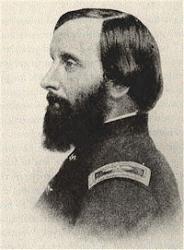Planning worship?
Check out our sister site, ZeteoSearch.org,
for 20+ additional resources related to your search.
- |
User Links
Search Results
From street and square
Author: Thomas Wentworth Higginson, 1823-1911 Meter: 8.8.8.8 Appears in 5 hymnals First Line: From street and square, from hill and glen Topics: The Coming Day Used With Tune: SIMEON
From street and square
CHURCH TRIUMPHANT
Appears in 133 hymnals Composer and/or Arranger: J. W. Elliott (1833- ) Incipit: 51532 16534 56713 Used With Text: From street and square, from hill and glen
CHURCH TRIUMPHANT
From street and square
Author: Thomas Wentworth Higginson, 1823-1911 Hymnal: The Beacon Song and Service book #167 (1935) Meter: 8.8.8.8 First Line: From street and square, from hill and glen Topics: The Coming Day Languages: English Tune Title: SIMEON
From street and square
From street and square, from hill and glen
Author: Thomas W. Higginson Hymnal: Songs for Worship #d44 (1930)
From street and square, from hill and glen
From street and square, from hill and glen
Author: Thomas Wentworth Higginson Hymnal: Social Hymns of Brotherhood and Aspiration #59 (1914) Languages: English Tune Title: CHURCH TRIUMPHANT
From street and square, from hill and glen
Thomas W. Higginson

1823 - 1911 Author of "From street and square, from hill and glen" in Hymns of the Spirit for Use in the Free Churches of America Higginson, Thomas Wentworth, M.A., was born at Cambridge, U.S.A., Dec. 22, 1823, and educated at Harvard. From 1847 to 1850 he was Pastor of an Unitarian Church at Newburyport, and from 1852 to 1858 at Worcester. In 1858 he retired from the Ministry, and devoted himself to literature. During the Rebellion he was colonel of the first negro regiment raised in South Carolina. In addition to being for some time a leading contributor to the Atlantic Monthly, he published Outdoor Papers, 1863; Malbone, 1869; and other works. During his residence at the Harvard Divinity School he contributed the following hymns to Longfellow and Johnson's Book of Hymns, 1846:—
1. No human eyes Thy face may see. God known through love.
2. The land our fathers left to us. American Slavery.
3. The past is dark with sin and shame. Hope.
4. To Thine eternal arms, O God. Lent.
In the Book of Hymns these hymns are all marked with an asterisk. They, together with others by Mr. Higginson, are given in Putnam's Singers and Songs of the Liberal Faith, 1875. [Rev. F. M. Bird, M.A.]
-- John Julian, Dictionary of Hymnology
Thomas W. Higginson
J. W. Elliott
1833 - 1915 Person Name: J. W. Elliott (1833- ) Composer of "CHURCH TRIUMPHANT" in Social Hymns of Brotherhood and Aspiration J.W. Elliott was a popular composer of the Victorian period, and is best known for his nursery rhyme music and for his work on hymnals in the 1870s. He was born James William Elliott, in Warwick, England, on February 13, 1833. As a child, he sang as a chorister in the Leamington Parish Church. In those days, choristers were given lessons in all facets of church music, including organ lessons, counterpoint studies, and more in exchange for providing an extraordinary level of service to their parish church (services throughout the week, all holidays, extra services, etc.). The result is that most choristers who completed their studies received an excellent music education, and James was no exception. After starting his career as an organist and choirmaster for a countryside church, his talent became obvious. He moved to London, where he assisted Sir Arthur Sullivan (of Gilbert and Sullivan fame) in editing Church Hymns. In addition, James worked for a music publisher.
His compositions include two operettas, numerous anthems, service music, works for instruments including the very popular harmonium, and most particularly for Nursery Rhymes and Nursery Songs, his children’s music score that sets many of the Nursery Rhymes to delightful music. Several of his hymn tunes are still in use today in many hymnals, most notably his hymn tune “Day of Rest.” He was heavily involved in the preparation of the musical edition of Church Hymns in 1874, the Choral Service Book of 1892, and transcriptions of hymn tunes using harmonies different than the traditional ones found in hymnals. He died in St. Marylebone, London, on February 5, 1915.
--www.nursery-songs.com/
J. W. Elliott


 My Starred Hymns
My Starred Hymns


